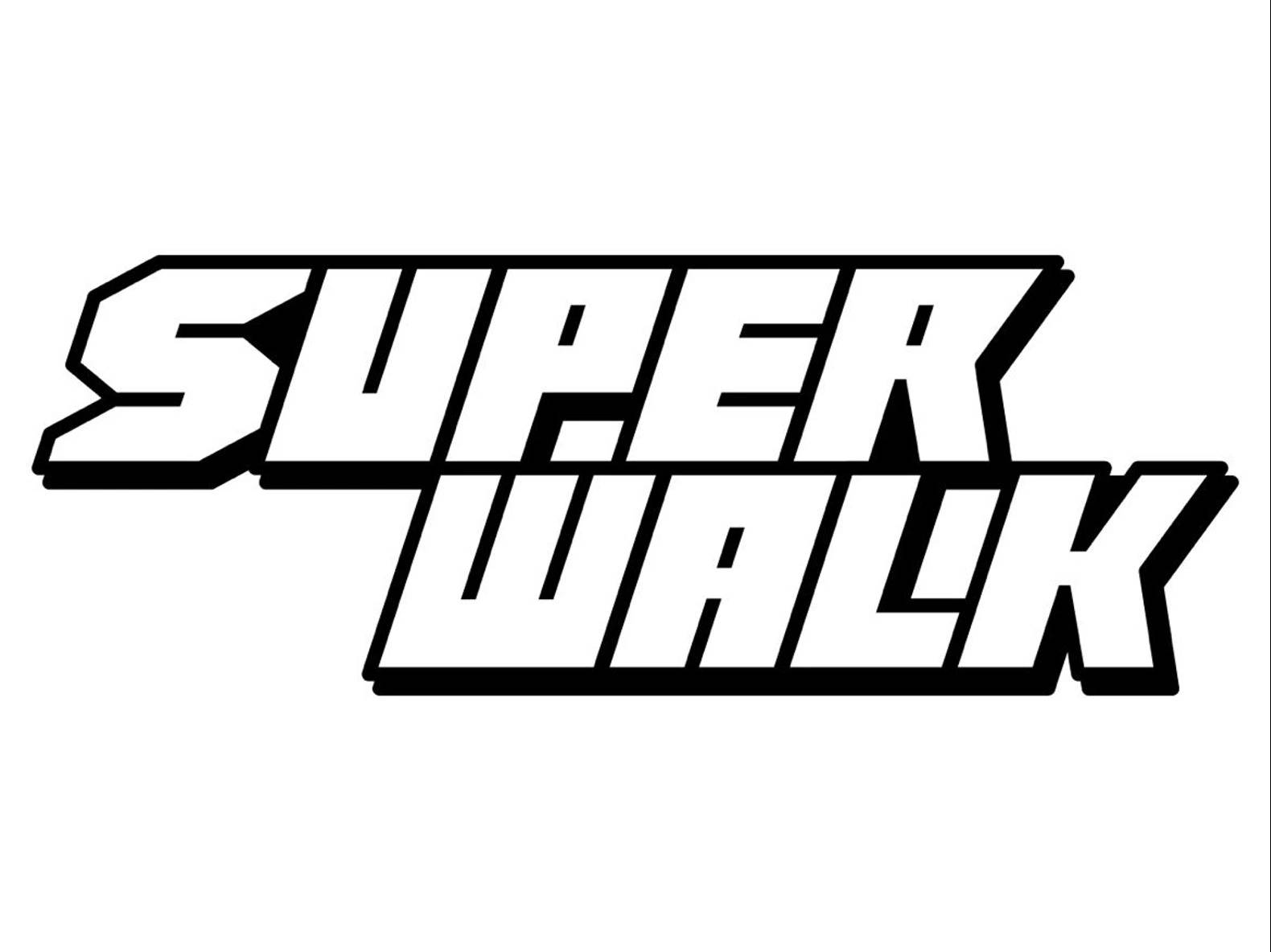SuperWalk
SuperWalk is a blockchain-based Move-To-Earn service that rewards users with tokens for walking. It employs a dual token model ($WALK and $GRND), in which users earn daily rewards for walking or running. [1]
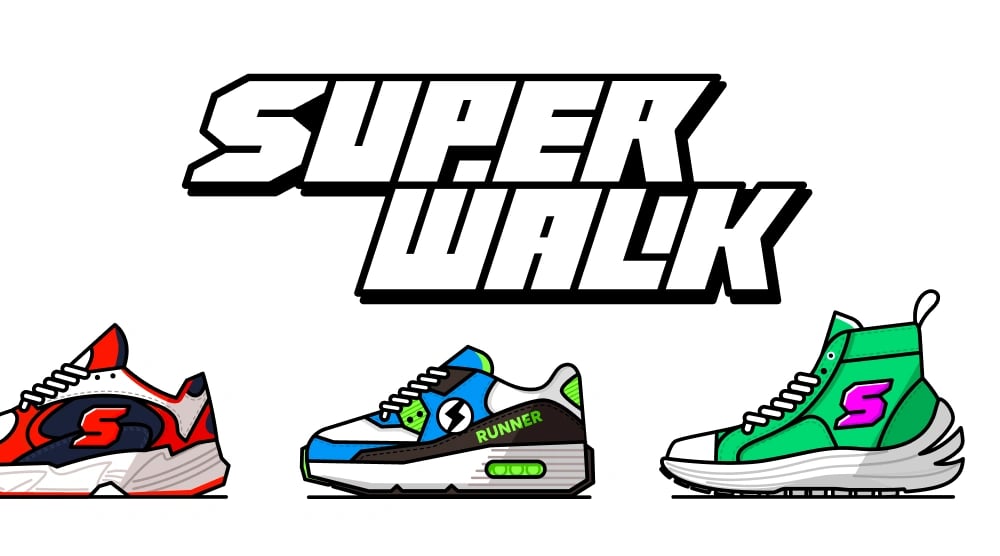
Overview
SuperWalk is a blockchain-based Move-To-Earn service that rewards users with tokens for walking. It uses a dual token model ($WALK and $GRND), allowing users to earn daily rewards by walking or running, with the amount varying based on mode, shoe type, grade, and stats. The app uses these tokens for repairing, synthesizing, leveling up, building, purchasing items, and other functions. SuperWalk's Shoes NFTs and fungible tokens will continue to expand as more features and updates are added to the app. [1]
Features
Modes
SuperWalk offers two play modes. Basic Mode allows users to start with just the app installation, while Pro Mode enables engagement with Shoes NFTs.
- Basic Mode is a reward-style pedometer service available only for accounts without Shoes NFTs. It allows users to understand and experience SuperWalk services for an extended period, potentially encouraging them to consider entering Pro Mode. [2]
- Pro Mode is exclusive to Shoes NFT holders. Users earn $WALK and $GRND rewards by walking and running in Pro Mode. Tokens are distributed based on the stats from Shoes rating, levels, attributions, and items, as determined by the SuperWalk reward calculation algorithm. In Pro Mode, engaging in activities consumes energy and is influenced by the number and grades of Shoes NFTs held in the user's account. As energy is used, the durability of shoes decreases. When durability drops below a certain threshold, the efficiency of point acquisition also decreases. Therefore, users need to repair their shoes promptly to maintain durability above the required levels for optimal efficiency in point acquisition. [3][4]
Shoes NFT
Shoes NFTs in SuperWalk have varying designs, levels, grades, performance, durability, comfort, luck stats, and additional option stats. Users with Shoes NFTs can access Pro Mode to earn $WALK and $GRND rewards. Rewards can be enhanced through leveling up, reinforcement, and item installation, offering a Game-Fi experience as shoes are developed. SuperWalk aims to provide exercise goals tailored to individual physical needs and fitness levels, promoting consistent running without fatigue. Token mining is optimized at target speeds specific to each Shoes NFT, with reduced rewards if users deviate from this speed. [4]
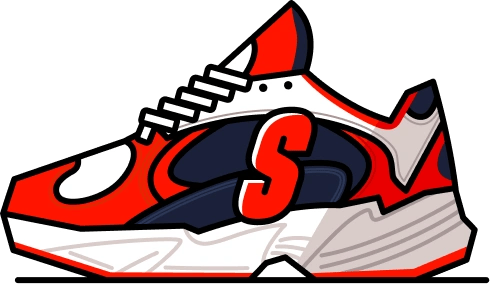
Stats & Grade
Stats are the most influential factor in SuperWalk Pro Mode. Shoes NFTs earn stat points with each level-up, and holders can distribute these points as desired. Strategic and careful distribution of stat points maximizes token acquisition effectiveness. [4]
There are four types of Shoes NFT stats: [4]
- Performance: Determines $CNK and $GRND acquisition per unit of time and distance. Higher performance stats yield more efficient rewards in a shorter time.
- Resilience: Affects the rate of wear on Shoes per unit of time and distance. Increasing resilience stats reduces repair costs.
- Comfort: Influences stamina and endurance over time, affecting the user's ability to sustain activity without fatigue.
- Luck: Affects the probability and quality of items, buffs, and other rewards obtained through play. Higher luck stats increase the chances of acquiring valuable items and achieving high reinforcement grades.
Shoes NFTs are also categorized into five grades, each with different default stat sums and ranges. Normal-grade shoes have a total default stat sum of 15, with individual stats for Performance, Resilience, Comfort, and Luck ranging from 3 to 6. Rare-grade shoes have a total default stat sum of 30, with stats for each category ranging from 6 to 12. [4]
Epic grade shoes have a total default stat sum of 60, with individual stats ranging from 12 to 24. Unique grade shoes have a total default stat sum of 120, with each category's stats ranging from 24 to 48. Legendary grade shoes have the highest total default stat sum of 240, with individual stats for Performance, Resilience, Comfort, and Luck ranging from 48 to 96. [4]
Generation System
SuperWalk introduces a generation system for Shoes NFTs, where each generation is designed and valued based on the project's operational direction. The first minted Shoes NFTs are designated as 'Gen0', possessing special characteristics that mark them as pioneers in the ecosystem. Subsequent NFTs produced through breeding are sequentially labeled as Gen1, Gen2, and so forth, rewarding early adopters and potentially increasing in value as each generation brings new features and distinctions. [4]
Gen0 Shoes NFTs initially have the highest breeding capacity, allowing for the maximum number of production cycles. However, as subsequent generations evolve, the maximum breeding opportunities decrease, accompanied by increased production costs. This generation-based system enhances the diversity and stratification of NFTs within the Shoes NFT ecosystem, influencing their grade and attributes. [4]
The evolving generation system is crucial for establishing varied pricing structures and ensuring the long-term viability of the SuperWalk project. As newer generations with reduced breeding capacities are introduced at lower prices, it aims to lower entry barriers for new users, encouraging their transition to Pro Mode and promoting broader participation in the SuperWalk ecosystem. [4]
Minting
The minting mechanism in SuperWalk allows users to create new Shoes NFTs by combining two previous generation Shoes NFTs while retaining the original shoes. Both Shoes NFTs used in minting must be at least Level 10. The characteristics of the new Shoes NFTs, including type, grade, and generation, are influenced by the attributes of the shoes used in the minting process. Types and grades are determined probabilistically, while generations follow a predefined mechanism. Subsequent generations are less likely to be used in minting and incur higher costs above a certain threshold. [4]
To mint new Shoes NFTs, the following conditions must be met: [4]
- Only Shoes NFTs that are Level 10 or higher can be used for minting.
- The minting time varies based on the grade of the shoes used:
- Normal: 6 hours (Boosting Cost: 36 $WALK)
- Rare: 24 hours (Boosting Cost: 144 $WALK)
- Epic: 48 hours (Boosting Cost: 288 $WALK)
After being used in minting, Shoes NFTs require a cooling period before they can be used again. The cooling time is determined by the higher grade shoe among the pair used: [4]
- Normal: 72 hours
- Rare: 120 hours
- Epic: 240 hours
These conditions ensure a structured approach to creating new generations of Shoes NFTs in SuperWalk, maintaining balance and fairness in the minting process while leveraging the characteristics and attributes of existing NFTs. [4]
Energy Boost
Energy Boost was implemented in SuperWalk to alleviate the strain on heavy users from prolonged exercise. It reduces exercise time while increasing point acquisition through higher energy consumption. However, since SWEAT points are based on exercise time rather than energy, the acquisition of SWEAT points remains unaffected. Energy boost can be obtained through three methods: based on the number of shoes or maximum energy, through the Title effect, and by using boost items. These methods collectively contribute to the total energy boost acquired by the user. [5]
Additional Options
Additional options in SuperWalk can be unlocked for shoes once specific level conditions are met. Each shoe can have up to three additional option slots, with varying level limits and opening costs. Opening these slots requires using GRND tokens. When a slot is opened, the quality of options (option rate) is determined, and appropriate options are randomly selected. Option rates range from Normal to Legendary, mirroring the grades of shoes, with Hyper options exclusively available for Legendary shoes. [6]
Super Stone
Additional options in SuperWalk can be reset randomly using Super Stone, which can be purchased at the item store using WALK tokens. In the future, Super Stone may also be obtained through walking and running activities. Each option rate has a probability of being upgraded, and this probability increases with higher shoe quality. The number of Super Stones required for a reset varies based on the shoe quality and the number of additional open option slots. Using Super Stone will randomly change the options for all currently open slots. Once reset, option rates can remain the same or be upgraded; they do not decrease in quality. [7]
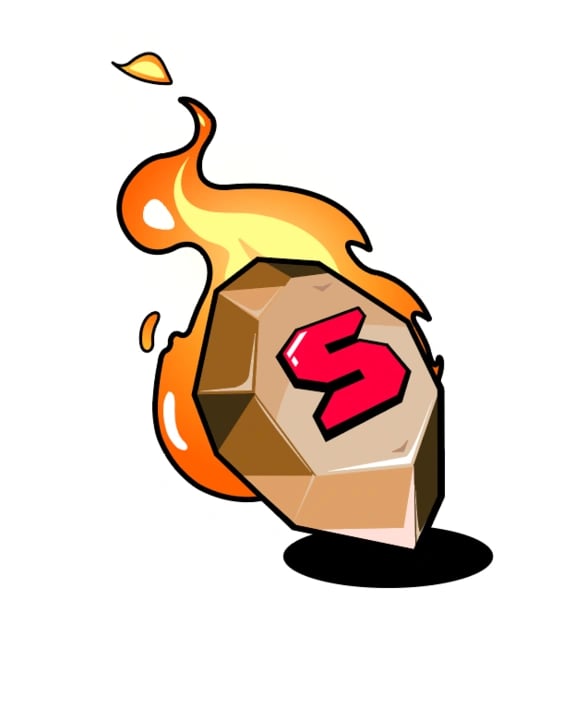
Items
SuperWalk users can obtain various items through exercise, with the likelihood of acquiring items increasing based on the LUCK stat of the shoe they use. During exercise, users typically receive an item box containing equipment items, consumables, materials, and occasionally event or special items. Opening an item box requires consuming 3 WALK tokens. [8]
Equipment items obtained from item boxes are initially "sealed," and unsealing them assigns the item one of several potential abilities. These abilities can enhance shoe stats, provide additional options, or boost energy levels. Future enhancements to the equipment system promise to offer even more diverse and improved capabilities. [8]
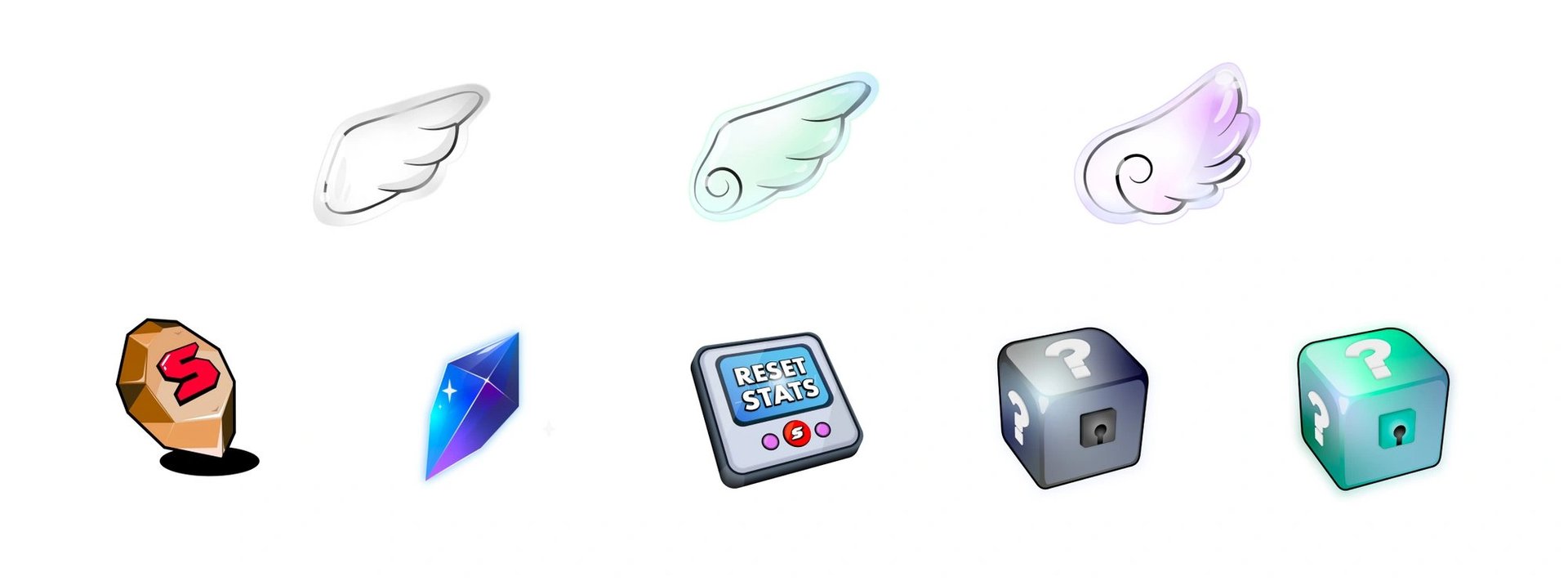
SWEAT
SWEAT in SuperWalk functions as an in-app resource rather than an on-chain token. It serves various purposes, such as shoe promotion, leveling up, and minting, with potential future applications. Users acquire SWEAT by engaging in SuperWalk's Pro Mode, where approximately 0.2 units of SWEAT are earned for every unit of energy consumed, calculated per minute of activity. SWEAT earned is displayed on the screen after each running session concludes. [9]
Raffle System
The SuperWalk team aims to offer valuable high-grade Shoes NFTs and limited edition NFTs through collaborations, along with rare items, via a Raffle System. In this system, if demand exceeds supply, the probability of winning increases proportionally with the number of tickets purchased, ensuring fair distribution of NFTs. Game-Fi elements integrated into the Raffle system enhance the excitement of acquiring NFTs. Importantly, token revenues generated from these events are burned and reinvested into the ecosystem, enhancing the sustainability of the SuperWalk project. Users can participate in periodic raffle events by spending SWEAT, $WALK, $GRND, and $KLAY tokens. Participation eligibility in the Raffle varies depending on whether users are in Basic or Pro Mode. [10]
Tokens
SuperWalk implemented a Dual Token Model to establish a sustainable token economy for its long-term operation. This model distinguishes between Utility Tokens ($WALK), primarily utilized within the app for various functionalities, and Governance Tokens ($GRND), which play a role in decision-making processes across the SuperWalk project. This separation is designed to minimize interference between the values and purposes of each token, ensuring their respective roles are optimized for the project's overall functioning and user engagement. [11]
WALK
SuperWalk's utility token, $WALK, serves as the primary token within the ecosystem. While $WALK is issued without a finite supply, measures are in place to prevent excessive inflation through a daily total issue limit. Users earn $WALK by engaging in activities such as walking and running, tracked via GPS and step sensors. Daily rewards in $WALK are distributed based on users' accumulated points, influenced by various factors, including GPS accuracy, energy consumption, and the types of Shoes NFT owned. [12]
WALK Reward Pool
The daily $WALK Reward Pool is adjusted dynamically based on a variable called the logic phase setting. One crucial variable influencing this pool is users' aggregate daily repair costs. Setting repair costs as a variable is justified because it serves as a clear indicator of user activity. Moreover, the daily $WALK Reward Pool is divided into two parts to mitigate token acquisition disparities. Additionally, a minimum amount of $WALK is incinerated daily to cover repair costs, ensuring new participants receive a baseline reward. [12]
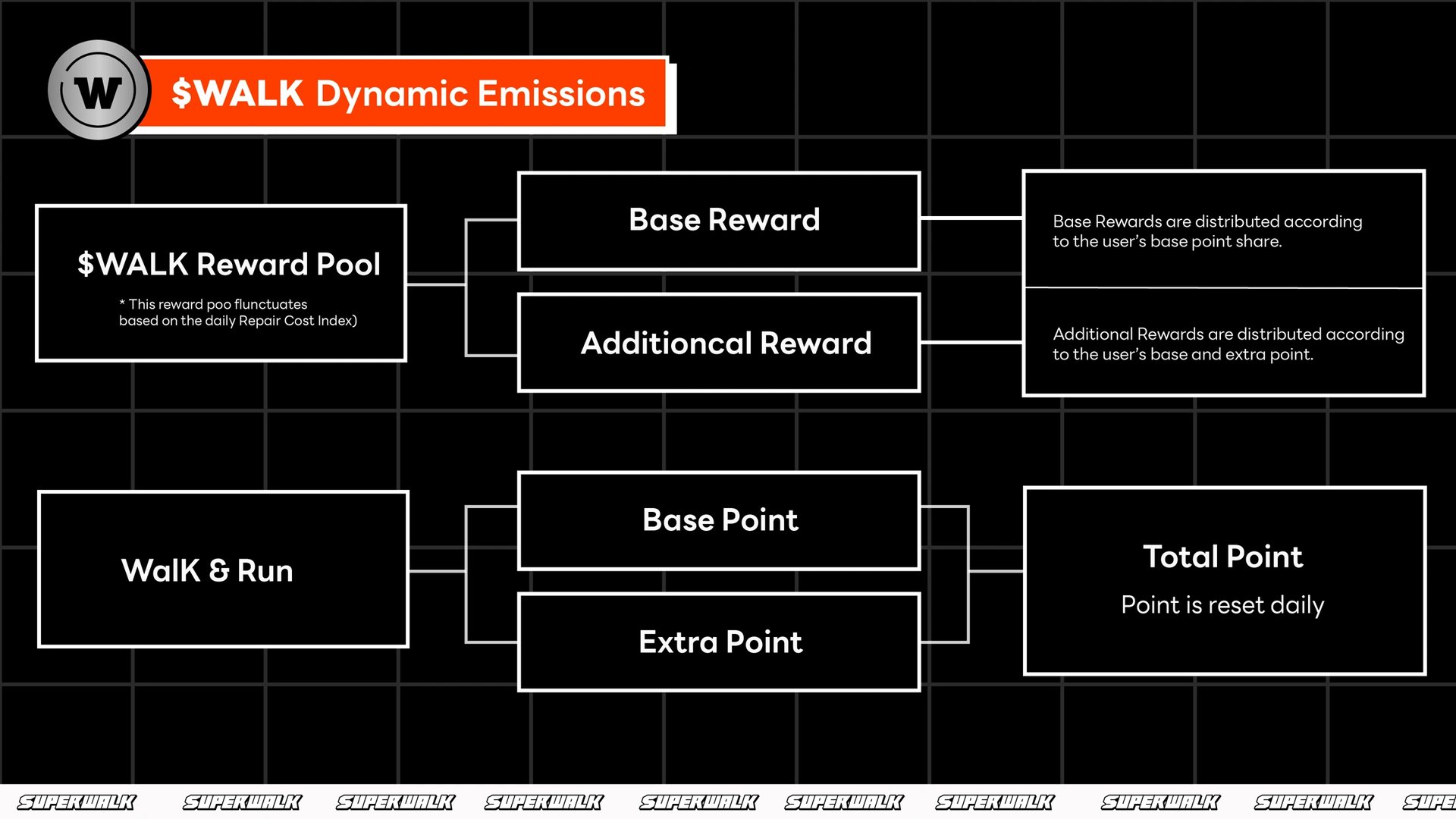
GRND
$GRND serves as the governance token of SuperWalk, playing a central role in community revitalization efforts and governance operations and enhancing the entertainment value associated with Shoes NFT within the app. Issued in a limited supply of 1 billion tokens, $GRND facilitates decision-making processes throughout the project's ecosystem. The allocation of $GRND is as follows: [13]
- Move to Earn: 46%
- Team: 15%
- Partner: 10%
- Ecosystem: 8.7667%
- Marketing: 8%
- Private Sale: 5.8%
- Operation & Advisor: 5%
- Liquidity: 1.2%
- ICO: 0.2333%
GRND Staking
Users can stake $GRND tokens to receive xGRND tokens, which are issued based on the current GRND:xGRND exchange ratio at the time of staking or unstaking. When $GRND is staked, xGRND tokens are issued according to the exchange ratio, and they are burned when xGRND is unstaked, ensuring that the issuance of xGRND is flexible but constrained by the total supply of $GRND. Plans for an xGRND Vault are scheduled for future implementation. [13]
Partnerships
- NaverZ
- Krust
- IPX
- KREAM
- Spring Camp
- WEMADE
- Hangang Ventures
- GBV
- Skyvision Capital
- Ticker Capital
- BORA
- Haechi Labs
- Klay City
- Pala
- Klay Dice
- Sun Miya Club
- MyBias
- Ozys
- DAVA
